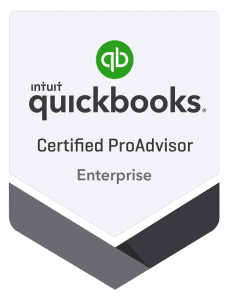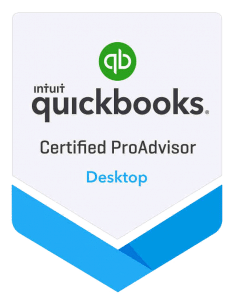Payroll may seem mundane to run a business, but it’s incredibly important for employees and employers. In a world where 93% of employees are paid through direct deposit, it’s also important to get it right, as failure to set up payroll processing correctly can result in missed or delayed payments and disgruntled employees (rightfully so).
What is the payroll process, though, and how does it work? We’ll explain it more in-depth below, but simply put, payroll processing is the system used to pay employees for their hard work. However, it’s not as simple as just handing out paychecks. There are a lot of details involved in the payroll process, from calculating taxes and benefits to keeping accurate records.
Proper payroll processing is a crucial part of any business. As mentioned, it is important to ensure that employees are paid accurately and on time, and it can also help improve overall business operations. Business owners can avoid costly mistakes and improve their financial management by understanding how payroll works.
Whether you’re a small business owner, a self-employed individual, or just someone needing bookkeeping or payroll services, it pays (literally) to understand the payroll process. Here’s what you need to know.
The Importance of Organized Payroll Services
An organized payroll system is crucial for any business, whether big or small. Not only does it ensure that employees are paid accurately and on time, but it also helps the company stay compliant with labor laws and regulations. Here are some other tangible benefits of optimizing your payroll process and having an organized payroll system.
Increased Efficiency
When it comes to payroll, time is money. An organized payroll system can save your HR team countless hours weekly, allowing them to focus on other tasks. With automation and streamlined processes, employee information, payments, and tax filings can all be completed more quickly and accurately.
Reduction in Errors
Payroll mistakes can result in unhappy employees and costly fines. An organized payroll system reduces the likelihood of errors by ensuring all information is collected and entered accurately, and all necessary taxes and deductions are accounted for.
Employer and Employee Trust
When employees trust that they’ll be paid accurately and on time, they’re more likely to be satisfied with their job and company. An organized payroll system helps build this trust by providing a consistent paycheck, increasing job security, and preventing misunderstandings.
Tax Compliance
A well-organized payroll system ensures that all tax filings and payments are made on time and are accurate. This helps the business stay compliant with state and federal laws and can prevent costly penalties.
How the Payroll Process Works
The payroll process is how a company pays its employees. It involves several steps, including collecting employee information, calculating paychecks, and distributing wages. It may seem simple, but many factors are at play, including labor laws, taxes, and benefits.
Step 1: Gathering Employee Information
Before the payroll process can even begin, the company must gather the necessary employee information. This includes their personal and tax information, such as their name, address, social security number, and withholding allowances. You can typically gather this by collecting the following forms:
- I-9
- W-4
- State tax documents (if applicable)
This information must be kept confidential and secure.
Step 2: Track Time & Attendance
This won’t likely be an issue if your employees are salary workers. However, if you employ or pay hourly workers, you’ll need to find a way to track their time and attendance during each pay period accurately. Bookkeeping software sometimes includes this feature, which you can use to calculate their total hours worked to move on to the next step, which is…
Step 3: Calculating Paychecks
Once the employee information has been gathered, it’s time to calculate the paycheck. This involves determining the employee’s gross pay, which is their earnings before deductions. You’d then subtract deductions such as taxes, employee benefits, and other withholdings. If that sounds time-consuming, then you’d be right. That’s why most people use bookkeeping software.
Step 4: Distributing Wages
The final step is to distribute the wages. This can be done through direct deposit, sending the money directly to the employee’s bank account, or through a paycheck. Additionally, if you’re an employer, you’re typically required to provide a pay stub that displays the details of the employee’s wages and deductions.
Types of Payroll Processing
The most common payroll types are:
- Hourly pay
- Salary-based pay
- Commission
Each type has a different way of being calculated and paid out.
Hourly pay is the most straightforward type of payroll processing. As the name suggests, the employee is paid based on the number of hours worked in a pay period. For example, an employee who works 40 hours per week and earns $20 per hour would receive a gross pay of $800.
Salary-based pay is different. Instead of being paid for the hours worked, employees receive a set amount for a designated pay period, usually monthly or bi-weekly. In this case, the employee is paid based on their annual salary, divided into equal payments annually.
Lastly, commission-based payroll is a pay structure that relies on sales and commission rates. Commission-based employees receive a percentage of their sales added to their regular pay.
If you’re an employer, it’s important to correctly classify employees under the Fair Labor Standards Act. It determines their eligibility for overtime pay, breaks, and other employment benefits.
Get Bookkeeping Services
Ultimately, the payroll process is a combination of analyzing employee data, calculating salaries, taxes, and other deductions and distributing payments to staff. It’s a vital aspect of any business’s operations. Therefore, ensuring it’s done accurately and on time is crucial.
At Cloud Bookkeeping, we understand the importance of getting payroll right. That’s why we have a range of managed solutions and software to help you streamline your payroll process, including payroll services for small businesses. By outsourcing your payroll to us, you’ll free up time to focus on other important aspects of your business.
If you want to learn more about how we can help you improve your payroll process, contact us today!






